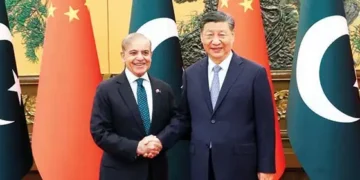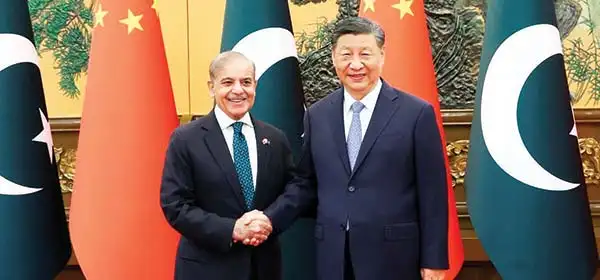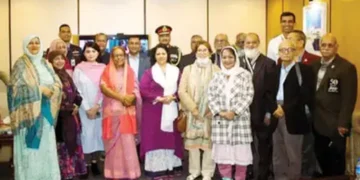Blitz Bureau
NEW DELHI: PAKISTAN-China arms nexus has profoundly transformed South Asian military balance, posing significant challenges to regional stability and the global security framework, a report cited on August 11. The alliance transcends conventional buyer-seller arrangements, positioning Pakistan as a pivotal hub in China’s strategic military influence operations across South Asia and beyond.
“Pakistan’s military dependence on Chinese hardware has reached unprecedented levels. According to the Stockholm International Peace Research Institute (SIPRI), China supplied 81 per cent of Pakistan’s arms imports in the past five years, representing a dramatic shift from the balanced approach Pakistan maintained with both Western and Chinese suppliers in previous decades,” a report in Times of Oman highlighted.
According to the report, since 2015 China has sold Pakistan $8.2 billion in arms, with Islamabad accounting for 63 per cent of Beijing’s total arms exports during 2020-2024 period. This marks a deliberate, decisive shift away from Pakistan’s traditional Western suppliers.
In the late 2000s, the report said, the US and China each contributed one-third of Pakistan’s imports. However, in recent years, Islamabad has stopped purchasing American arms and bolstered its arsenal with Chinese weapons. The transition gained momentum after the US cancelled military aid programmes, signaling a major restructuring in Pakistan’s defence procurement strategy.
“Joint projects producing armaments ranging from fighter jets to guided missile frigates have deepened the technological integration between the two military-industrial complexes. The relationship has facilitated intelligence exchanges that extend beyond conventional arms sales. Pakistan has provided China with access to US and other Western military technology that Beijing’s scientists have then reverseengineered,” the report detailed “This intelligence sharing arrangement has enabled China to enhance its military capabilities through analysis of Western systems previously acquired by Pakistan, raising significant concerns about technology security and proliferation controls,” it added.
































